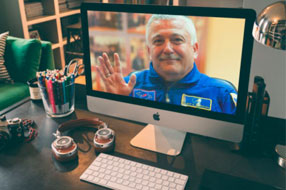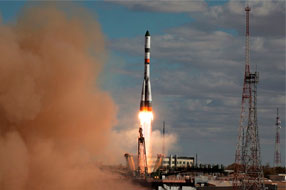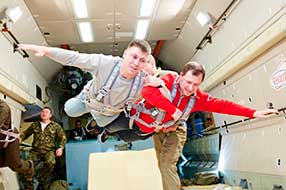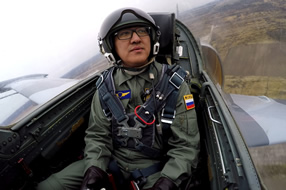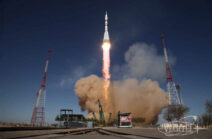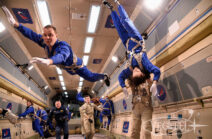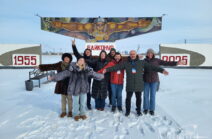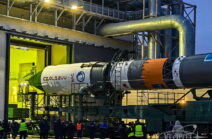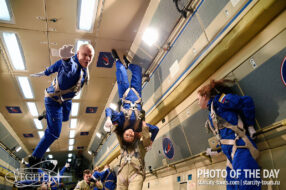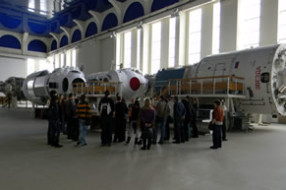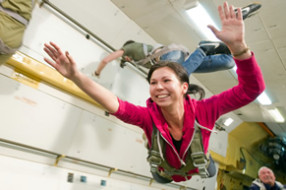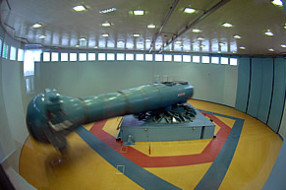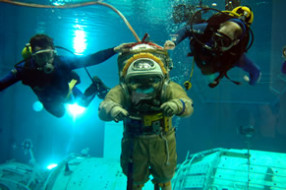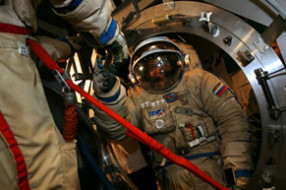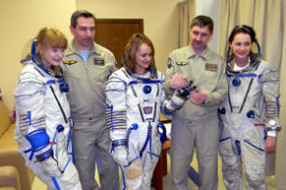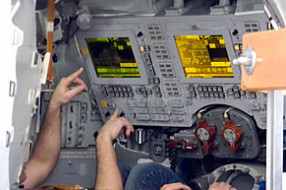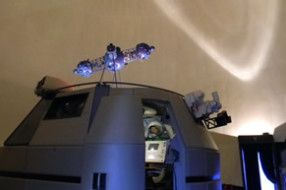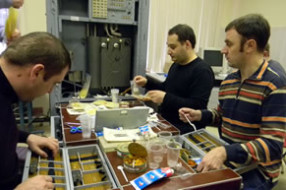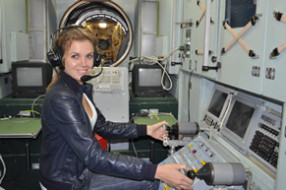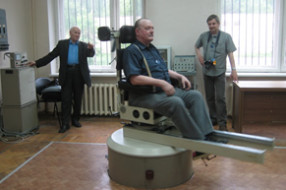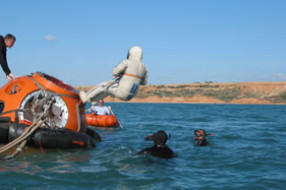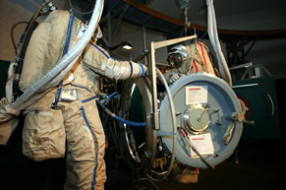Don-Soyuz TMA simulator


The main peculiarity of the “Don-Soyuz” simulator is the opportunity to manually control the real spacecraft.
Regular nominal flight are performed in the automatic mode and manual operations can be done only under the commander’s decision or command from the ground Mission control center. Nevertheless manual control skills are necessary for every crew member. Now you also will be able to learn how to control Soyuz-TMA spacecraft, which delivers astronauts to space. During the training you can, for example, dock to the International Space Station, that is a very complicated and vitally important task for the crew.
Special simulators for approaching and docking (Don-Soyuz TMA and Don-Soyuz TMA-2) are designed to form and support skills of the spacecraft and its systems manual control during rendezvous, final approach, flying around, docking and undocking with the ISS, and also to practice modes of the emergency egress from the orbital station by the crew onboard two spacecrafts simultaneously (joint work of both simulators). Simulators also provide observation of the exterior visual conditions through all the optical and television observation devices of the spacecraft.
Simulators are used for astronauts’ skill training in the following:
- Spacecraft control while approaching, birthing, docking and undocking from the ISS during nominal modes or off-nominal and emergency situations;
- Monitoring of the spacecraft’s approaching and docking to the ISS in the automatic mode as well as identification of malfunctions and switch over to the manual control mode;
- Work with astronaut’s control panel;
- Work with astronaut’s optical sight;
- Mode of the simultaneous undocking of two spacecrafts.
+7 (495) 506-32-23
+7 (495) 662-45-99
For more information about the organization of the program please contact our managers by phone, e-mail or Skype.
HAVE A QUESTION?
Feel free to use our contact form to send online message. We will answer you shortly.




